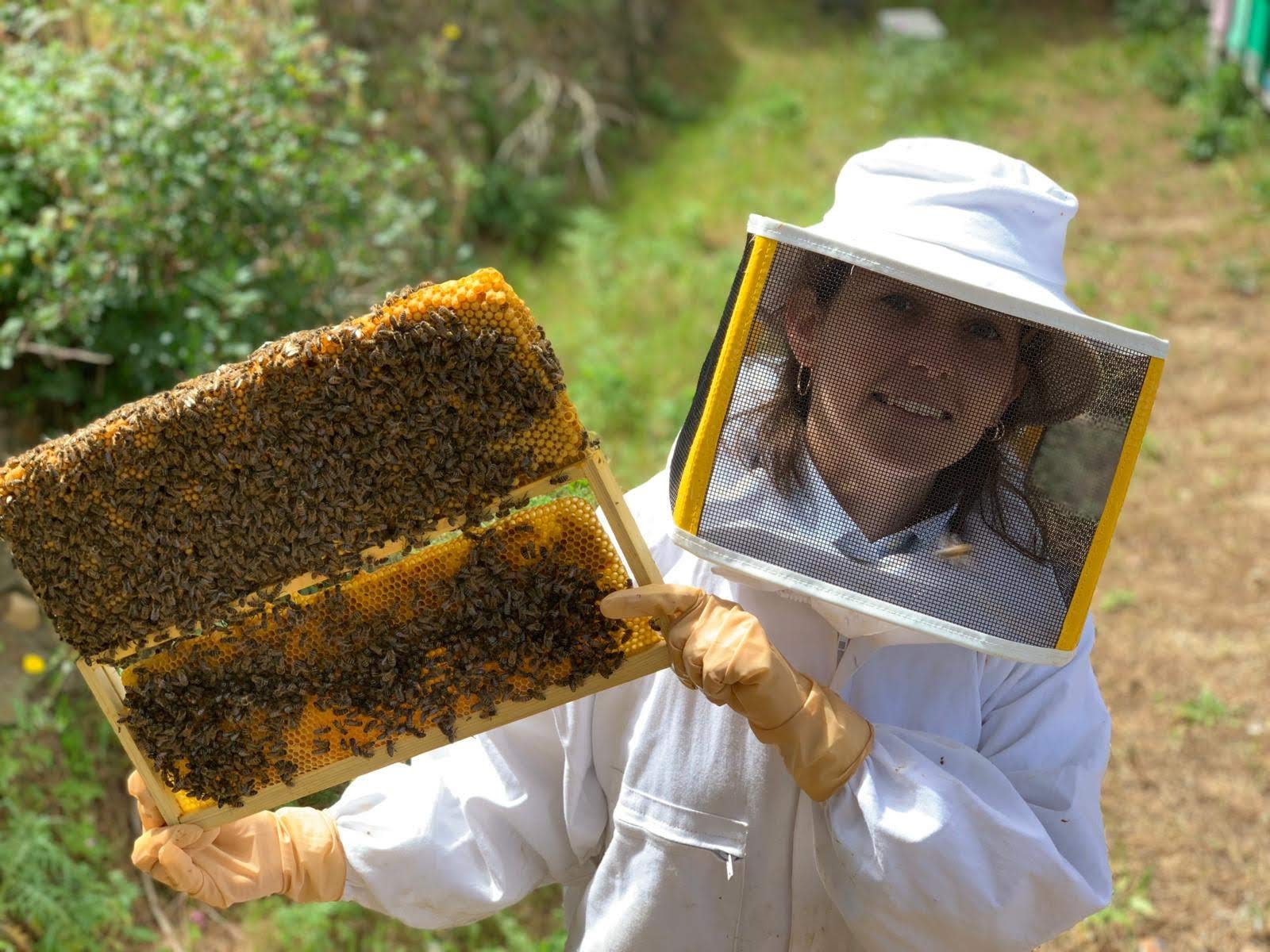
Beekeeping is a fascinating hobby that has been practiced for thousands of years. It not only provides us with sweet, golden honey but also plays a crucial role in pollination and the overall health of our ecosystem. While many of us are familiar with the basic concept of beekeeping, there are numerous surprising facts and intricacies about this craft that often go unnoticed.
In this article, we will delve into the world of beekeeping and uncover 20 surprising facts that will expand your knowledge and appreciation for these incredible creatures. From the incredible communication skills of bees to the unique flavors of honey from different regions, you’ll be amazed at just how intricate and captivating the world of beekeeping truly is.
Key Takeaways:
- Bees are vital for agriculture and the environment, as they are the world’s most efficient pollinators, helping plants and crops reproduce. Their hard work is essential for food production and biodiversity.
- Beekeeping has a rich history dating back to ancient Egypt, and bees have been producing honey for millions of years. Their fascinating communication, architectural skills, and intelligence make them truly remarkable creatures.
Bees are the world’s most efficient pollinators
Beekeeping is a vital practice for agriculture and the environment. Bees are incredibly efficient pollinators and play a crucial role in the reproduction of many plants and crops.
A beehive can house thousands of bees
A typical beehive can house anywhere from 20,000 to 80,000 bees, including worker bees, drones, and the queen bee.
Bees communicate through intricate dances
Bees use a sophisticated dance language known as the waggle dance to communicate the location of food sources to other colony members.
Bee venom has medicinal properties
Bee venom is known for its potential health benefits, including reducing inflammation, relieving pain, and even treating certain diseases like arthritis.
Honey is the only food that never spoils
Archaeologists have discovered pots of honey that are over 3,000 years old and still perfectly edible!
Bees have five eyes
In addition to two large compound eyes, bees also have three small eyes on top of their head called ocelli, which help them navigate and sense light intensity.
Bees are not native to North America
European colonists introduced honeybees to North America in the 17th century. Before that, there were no honeybees on the continent.
Bees have been producing honey for millions of years
Fossil records indicate that bees have been producing honey for over 150 million years!
Beekeeping has been practiced for thousands of years
Beekeeping dates back to ancient Egypt, where bees were kept in clay hives and honey was used for both food and medicine.
Bees can recognize human faces
Research has shown that bees have the ability to learn and remember human faces, making them more intelligent than we might think.
Bees are skilled architects
Bees construct intricate hexagonal honeycomb structures using beeswax, maximizing efficiency and storage space.
Honey bees are the most common type of bees used in beekeeping
Honey bees (Apis mellifera) are the species most commonly kept by beekeepers due to their high honey production and social behavior.
Bees can recognize different colors
Bees have excellent color vision and can see a wider spectrum of colors than humans, including ultraviolet light.
Beekeeping plays a key role in food production
Bees help pollinate a wide variety of crops, including fruits, vegetables, nuts, and oilseeds, contributing to global food security.
Bees have to visit around 2 million flowers to produce one pound of honey
It takes the collective effort of many bees to gather nectar from a large number of flowers and produce a single pound of honey.
Beeswax has multiple uses
In addition to being used by bees to build honeycombs, beeswax is also used in the production of cosmetics, candles, and even wax seals.
Bees have favorite flowers
Bees have preferences when it comes to the flowers they visit, and they tend to favor flowers with vibrant colors and rich sources of nectar.
Bees are incredibly hardworking
A single honeybee can visit up to 5,000 flowers in a day, tirelessly collecting pollen and nectar to bring back to the hive.
Beekeeping can help the environment
By providing bees with safe and healthy habitats, beekeepers contribute to the conservation of bees and the preservation of biodiversity.
Bees are essential for honey production
Without the hard work of bees, there would be no honey! Beekeepers rely on bees to produce the sweet and delicious golden liquid we enjoy.
These 20 surprising facts about beekeeping highlight the incredible world of bees and the important role they play in our lives. From their intricate communication methods and architectural skills to their essential role in pollination and honey production, bees are truly remarkable creatures. By understanding and appreciating the world of beekeeping, we can further support the conservation and welfare of bees for generations to come.
Conclusion
Beekeeping is a fascinating hobby that comes with its fair share of surprises. Whether you’re a seasoned beekeeper or just starting out, these 20 surprising facts about beekeeping are sure to pique your interest. From the incredible efficiency of a honeybee colony to the health benefits of bee products, there is so much to discover about these tiny yet mighty creatures.Not only does beekeeping offer a sustainable way of producing honey, beeswax, and other bee products, but it also plays a crucial role in pollination, benefiting our environment and agricultural practices. By supporting honeybee populations, we can contribute to the preservation of biodiversity and the growth of our food systems.So, if you’re thinking about taking up beekeeping or simply interested in learning more about these incredible insects, dive into the world of beekeeping and embrace the wonders it has to offer.
FAQs
1. Can anyone become a beekeeper?
Yes, beekeeping can be pursued by anyone who is interested and willing to learn. It requires knowledge, dedication, and a commitment to the well-being of the bees.
2. Is it safe to have beehives in a residential area?
When set up and managed properly, beehives can coexist harmoniously in residential areas. Bees are typically docile and will not pose a threat if left undisturbed.
3. How much time does beekeeping require?
Beekeeping requires regular check-ups and maintenance throughout the year. This could range from weekly inspections during the busy season to monthly checks during the colder months. It’s important to dedicate enough time to ensure the health and well-being of your bees.
4. Do beekeepers only keep honeybees?
Honeybees are the most common bees kept by beekeepers due to their honey production and pollination benefits. However, some beekeepers also keep other types of bees, such as bumblebees or solitary bees.
5. How much honey can be harvested from a beehive?
The amount of honey harvested can vary depending on factors such as the size and strength of the colony, the availability of nectar sources, and local climate conditions. On average, a healthy hive can produce anywhere from 30 to 100 pounds of honey per year.
6. Are there any risks involved in beekeeping?
Beekeeping does come with some risks, such as the possibility of getting stung. However, with proper protective equipment and careful handling of the bees, these risks can be minimized.
7. Can beekeeping be profitable?
While beekeeping can be a source of income through the sale of honey, beeswax, and other bee products, it’s important to note that the profitability can vary. Success in beekeeping often depends on factors like market demand, location, and the scale of the operation.
8. How do you become a beekeeper?
To become a beekeeper, it’s recommended to start by educating yourself through reading books, attending workshops, and joining local beekeeping associations. It’s also beneficial to find a mentor who can provide guidance and hands-on training.
9. Is beekeeping environmentally friendly?
Yes, beekeeping is considered environmentally friendly. Bees play a vital role in pollinating plants, contributing to biodiversity and ensuring the reproduction of numerous plant species.
10. Can anyone consume bee products?
While most people can enjoy bee products like honey and beeswax without any issues, it’s important to note that individuals with bee product allergies should avoid their consumption. As with any food product, it’s always wise to consult with a healthcare professional if you have any concerns or medical conditions.
Beekeeping offers a glimpse into the captivating world of these incredible insects, but there's still more to explore. From the surprising strength of bees' knees to the unconventional life of Burt Shavitz and the rich history of Buckfast Abbey, our collection of articles will take you on a journey through the lesser-known aspects of bees and beekeeping. Each story is a testament to the resilience, ingenuity, and importance of these tiny creatures in our world. So, if you're ready to buzz into more fascinating facts, read on!
Was this page helpful?
Our commitment to delivering trustworthy and engaging content is at the heart of what we do. Each fact on our site is contributed by real users like you, bringing a wealth of diverse insights and information. To ensure the highest standards of accuracy and reliability, our dedicated editors meticulously review each submission. This process guarantees that the facts we share are not only fascinating but also credible. Trust in our commitment to quality and authenticity as you explore and learn with us.


